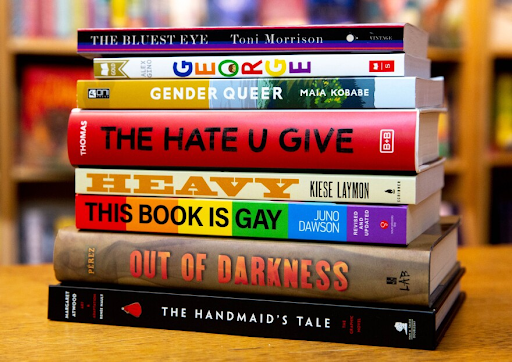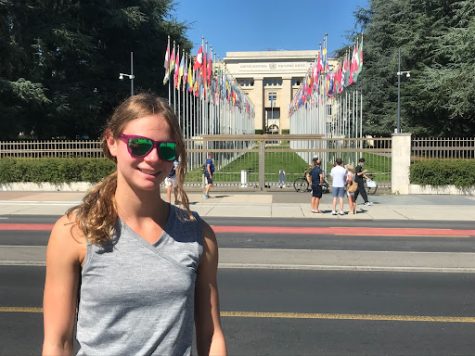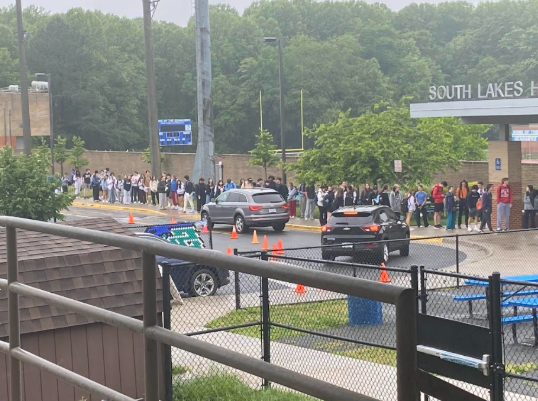Books are flying off shelves… but not like you’d think

Image via Saint Louis Public Radio
Students across America can expect a multitude of changes as they go into the 2022-23 school year. Most notably, there is a rise in restricting access to controversial books in school libraries.
The books taken off school library shelves involve issues like homophobia, racism and sexism according to the American Library Association and PEN Americans. A handful of the most challenged books of 2021 include Gender Queer by Maia Kobabe, Lawn Boy by Jonathan Evision, Out of Darkness by Ashley Hope Perez, and The Hate U Give by Angie Thomas.
In the past two years, six states have passed laws restricting book access. Now, several more states are beginning to do the same. While there is no exact percentage of school districts adopting these new policies, more books are being banned than ever before according to Deborah Cadwell-Stone of the American Library Association’s Office for Intellectual Freedom.
Much of this has to do with the activism of organizations such as Moms for Liberty, which fights for parent participation in schools. Moms for Liberty is a nonprofit organization founded by two former school board members. They believe that public education is skewed towards liberal ideologies, and they want parent involvement to level the playing field. They believe parents should have more of a say in what their children are exposed to at school. This involves limiting access to certain works of literature parents would deem inappropriate for their kids.
“We do not stand by or believe that we are banning books,” said Tina Descovich, co-founder of the organization. “We want to make sure books are age appropriate for our children. And we’re looking for solutions together.”
Such organizations have found success. In Pennsylvania, a panel of parents dictates which new books are admitted to libraries. In Nebraska, students need parent signatures to check out books. In other parts of the state, libraries are divided into different sections such as “juvenile,” “young adult,” and “adult.” Students are only allowed to check out books from the sections approved by their parents. In Bedford County, Virginia, just a 3-hour 45-minute drive south, parents get emailed every time their child checks out a book.
“This is a state-sponsored purging of ideas and identities that has no precedent in the United States of America,” said John Chrastka, the executive director of Every Library. “We’re witnessing the silencing of stories and the suppression of information [which will make] the next generation less able to function in society.”
Whether students support or oppose the book restrictions, there’s no denying the growing parental role in their children’s education- a role that is predicted to grow over the next few years.

Veronika Owen is the Co-Editor in Chief for the South Lakes Sentinel. She has had a passion for writing ever since third grade. When she’s not...















